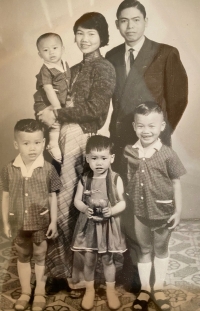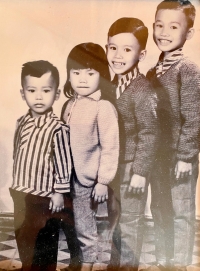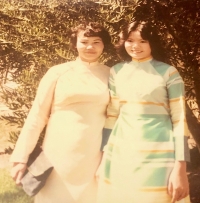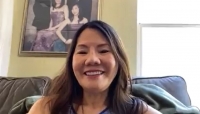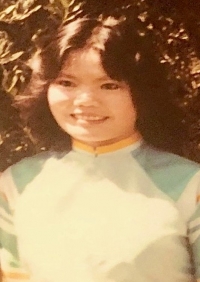I was not scared at all

Stáhnout obrázek
Anhha Phi was born in Nha Trang, Vietnam in 1960. Her father was a Lieutenant Colonel in the South Vietnamese military and her mother had work exchanging Vietnamese dong to US dollars out of their home. The Vietnam War, or the American War in Vietnam, was raging on. In the days leading up to the Fall of Saigon, now Ho Chi Minh City, the family made multiple attempts to leave the country. When the Viet Cong announced their takeover on April 30th of 1975, Anhha and her family finally left the country along with countless others by boat. They were dropped off in Guam as refugees and then transferred to Fort Chaffe in Arkansas, USA where they applied for American Sponsorship. At the age of fifteen, Anhha came to the United States with little knowledge of English and only the help of her family and the Lutheran Church in Winona, Minnesota who offered to sponsor her family. The family moved to California in 1978 and she finished her schooling in San Jose. She worked as an accountant and programmer before retiring in 2001. She continues to live in San Jose to this day.
